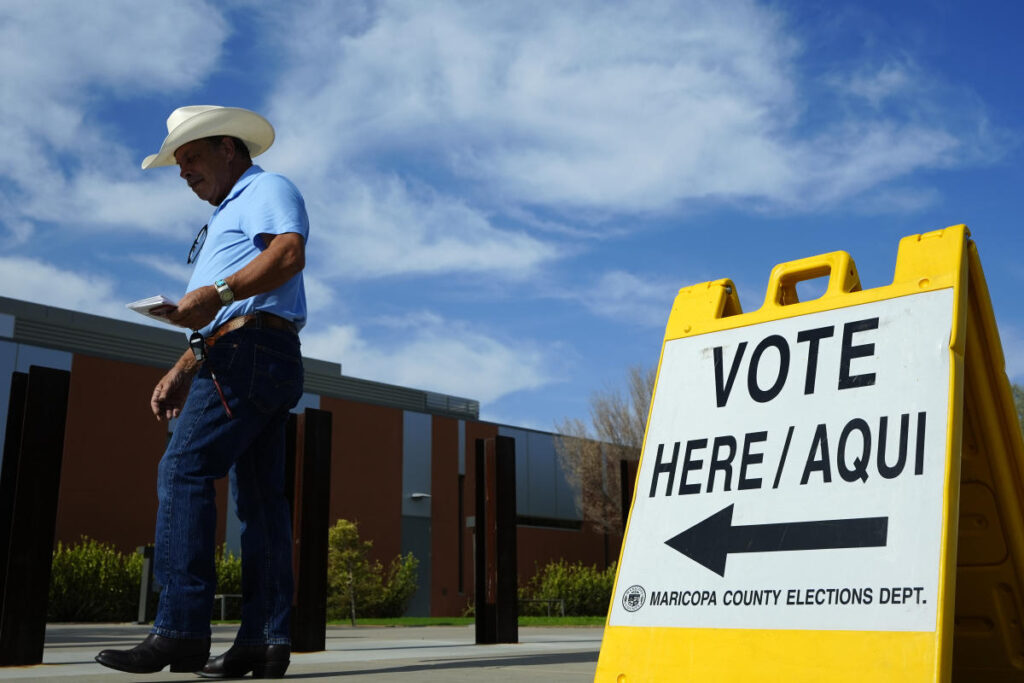Early in-person voting is set to commence in Arizona, marking the state’s position as the first among this year’s vital presidential battlegrounds to allow residents the opportunity to vote at traditional polling sites ahead of Election Day. This event not only highlights the significance of voter participation but also brings political heavyweights to the state, as both major party campaigns have organized visits to galvanize support during this critical voting period. The overlap of early voting and campaign activities underlines Arizona’s pivotal role in the upcoming election, with significant attention from both local and national figures.
Prominent political figures, including Democratic Vice Presidential nominee Tim Walz and Republican counterpart JD Vance, will be present in Tucson to engage with voters on the same day early voting begins. This is part of a broader strategy to leverage the excitement of early voting to rally their respective bases. Following this, Vice President Kamala Harris is scheduled to hold a rally in Phoenix, while former President Donald Trump has plans for an event in Prescott Valley, which is a Republican stronghold located north of Phoenix. The presence of these leaders signifies the high stakes of the election and the intense competition characteristic of Arizona’s political landscape.
Arizona’s 2020 election results underscored its status as a battleground state, with President Joe Biden narrowly winning by a mere 10,457 votes against Trump. This close result has fueled an environment of misinformation and conspiracy theories among some Republican factions, who have struggled to accept the outcome. The aftermath of the election has also led to increased threats and harassment directed towards election workers. In response to these safety concerns, some election offices have fortified security measures, affecting the availability of polling locations, particularly in Maricopa County, which encompasses Phoenix.
Historically, early voting has enjoyed robust popularity in Arizona, and this election cycle is expected to follow suit. In the 2020 election, nearly 80% of voters opted to cast their ballots before Election Day, as reported by the Secretary of State’s Office. Preparations for the upcoming election indicate that each of the state’s 15 counties must establish at least one in-person voting site. Maricopa County, being the most populous, has set up a dozen voting centers throughout the metro Phoenix area, ensuring accessibility for a significant portion of the electorate.
As of late July, Arizona counts approximately 4.1 million registered voters, although this number is subject to increase as various initiatives have been undertaken by both the Democratic and Republican parties to boost voter registration before the recent deadline. The combination of early voting opportunities and increased voter registration efforts indicates a concerted push from both sides to mobilize voters ahead of the election, which is indicative of the close competition anticipated in the state.
Although early in-person voting has been in effect in other states for a while, Arizona takes the lead among crucial presidential swing states. Following its early voting commencement, other states such as Georgia, Michigan, North Carolina, and Nevada are set to follow suit next week. The timeline of early voting in these states will further emphasize the importance of each region in the electoral process, as parties strive to turn out voters and secure essential support ahead of the general election set for November 5.

